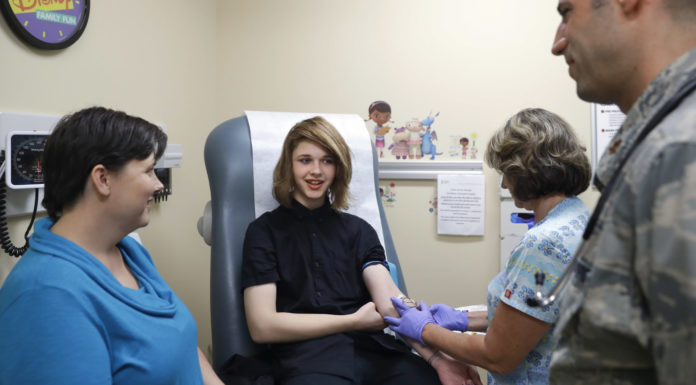(Molly Bruns, Headline USA) New evidence suggest that as many as three in 10 minors who elect to have life-altering, non-reversible gender-transition surgery may later regret the decision and wish to resume life as their biological gender.
Researcher Kinnon Ross MacKinnon gave a presentation at an event called Re/Detrans Canada, producing recent studies that show detransition rates are much higher than left-wing gender clinics have so often claimed, according to the Post Millennial.
Proponents for so-called gender-affirming care claim that the detransition rate among transgender youth is under 1%; however, MacKinnon presented on several studies showing rates between 2% to 30%.
A set of recently published studies in England show detransition rates ranging between 6.9% and 9.8%. In these studies, there was also a definite change in identity along with detransition.
MacKinnon also revealed the results of a joint study between Canadian and American researchers that have not been published yet.
The survey had 774 participants who “initiated gender affirming medical treatments.” Of those, 16% reported attempts to stop or reverse treatment citing cost, health concerns and fear of changing identities.
Transgender activists working in the medical field constantly cite the “less than 1%” statistic as a bastion of the effectiveness of hormone therapy and gender-transition surgery. The studies that cite this statistic usually look only at small groups of people shortly after they begin therapy.
Gender clinics are also moving toward the affirmative model of care, pushing doctors to immediately affirm confused young kids and push them into medical transition.
Michelle Zacchigna, a detransitioned woman, attended the conference to discuss the new study.
“This upcoming study and the study examining the US Military Healthcare System’s (MHS) medical and pharmacy billing records (which showed a discontinuation rate of nearly 30% within four years of beginning hormones) are showing that, at the very least, the number of people who decide exogenous hormones aren’t right for them is much higher than previously suggested,” Zacchigna told the Post Millenial in a statement.
She said it was unlikely that transgender activists and their leftist allies would acknowledge MacKinnon’s research as valid.
“[T]his likely won’t be interpreted as a problem with gender-affirming health care initially,” Zacchigna said.
“I expect to hear all of the excuses that are employed to excuse detransition being a clinical failure,” she continued. “It was transphobia, it was external pressure, it was a necessary part of the ‘gender journey’—anything to avoid admitting that a rising number of people are being prescribed something that was never going to help them in the first place,” she said.
Fortunately, there is a robust counter-movement, with several young detransitioners speaking out and filing lawsuits to end what pediatric neurosurgeon Michael Egnorcalled an “extraordinary medical atrocity,” during a recent interview with The Federalist.

